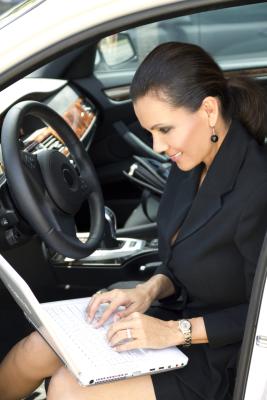
Buying a second-hand or used car makes good financial sense -- if you are careful. You save money on insurance, and used cars cost far less than new ones. However, you need to check some basics on a second-hand car before you decide whether it is a good idea to buy it. Most you can check yourself. But if you have a car-savvy or mechanic friend, ask him to look at the car with you.
Request a copy of the car's history report from Carfax or some other reliable source. Check for any past accidents; even minor fender-benders can do lasting damage to your potential second-hand car.
Check the mileage. Your car history report should tell you whether the mileage numbers you see have been tampered with. Even if the mileage indicator is accurate, do not buy a car with over 250,000 miles on it -- it won't last much longer.
Examine the interior and exterior closely. Look for rust, fresh drips on the pavement below, a moldy or musty smell in the interior, and any signs of more serious damage not included in the car history report. Any of these could be an indicator of a serious problem you cannot afford to fix.
Have someone else look at the car. If you have a favorite mechanic or friend who knows about cars, try to arrange for him to come with you to look at second-hand cars. He may be able to spot potential problems that you won't notice. Even if you need to pay a small fee to have a mechanic check the car, it's money well spent if you can avoid major car repairs later.
Always test-drive the car in town and out on the highway, if you can. A car may work well at city street speeds but pull to the left at 60 miles per hour. Make sure the brakes work without hesitation, "mushiness" or funny sounds, the transmission is shifting smoothly and the air conditioner/heating system works well. Listen carefully for unusual sounds coming from the engine.